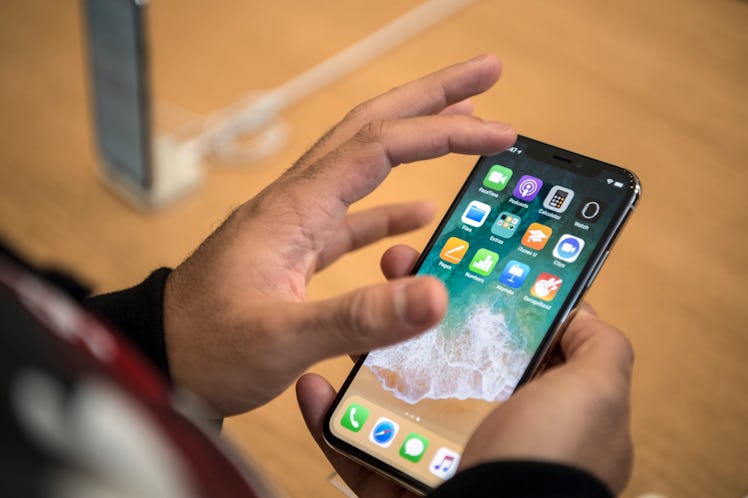
Here's How To Prevent These Scary Bugs From Hacking Your Apple Devices
Technology news usually goes one of two ways. Either there is a cool new update or gadget that you just have to get your hands on, or there is (sadly) news of a flaw with the current device you already own. Unfortunately, the latest news is more concerned with the latter. Recently, cybersecurity researchers discovered two major security flaws that are likely to affect large numbers of devices. So, it's crucial that you learn how to prevent "Meltdown" and "Spectre" from hacking your Apple device.
I know, this is not the fun type of tech news, but it is good to know so that you can get a handle on it before hackers do. According to a statement on Apple's website, the potential Meltdown and Spectre security flaws "apply to all modern processors and affect nearly all computing devices and operating systems." What that essentially means is that the computer, iPad, or iPhone that you use everyday is affected.
While it sounds scary given the reach of the security flaws, there are a couple of simple fixes that will protect your devices. Apple has already taken the actions necessary to provide the current solutions.
The first thing you want to do is to make sure that all of your devices are updated with the latest available updates from Apple.
Apple has released patches for Meltdown that were contained in iOS 11.2, macOS 10.13.2, and tvOS 11.2 updates, according to CNN Tech. So, if you regularly update your iPhone (hoping to be surprised with new emojis), then you're likely protected against the Meltdown bug. To protect your devices from the Spectre bug, keep an eye out for a Safari update from Apple coming soon (and avoid running JavaScript on your web browser).
You might be wondering what the Meltdown and Sepctre bugs do when they're utilized to gain access to your personal information. It turns out that they are more than just security flaws with James Bond-esque names. They are bugs that take advantage of "speculative execution," which is used in modern processors to help speed up devices. Meltdown has the most potential to be exploited, according to Apple, while Spectre is more difficult to exploit.
Again, Apple has released operating system updates for iPhones, iPads, Mac computers, and Apple TV to protect devices from Meltdown bug hacks. However, Apple Watch is not affected by the Meltdown security flaw.
Once your operating system is up-to-date, you'll want to make sure that all of your apps are also updated. Furthermore, you can help reduce the risk of hackers gaining access to your information by only purchasing apps from trusted sources, like Apple's App Store, since the security risk is most likely to come from a "malicious app."
Apple is continuing to research fixes for the Meltdown and Spectre bugs that could be released in later updates, but as long as you update everything as it comes out, your beloved (and let's face it, expensive!) Apple devices should be well-protected — phew!
While the updates will protect your brand-new iPhone X, they might also slow it down a bit. CNN Tech reports that many people will notice the slowdown in their devices since the fix requires a "fundamental change" in the way that modern processors currently operate. While a slightly slower smartphone is definitely a bummer, keeping it updated is the best way to prevent these security flaws from being exploited.
CNN Tech also reports that most people can rest easy knowing that the effort to mount these kind of cyberattacks is quite large, so the average person is probably not a target. But they also warn that since a permanent fix will take time, there is time for hackers to find a way in. Sorry, I hate to throw the good news-bad news at you.
The bottom line is that the Meltdown and Spectre security flaws exist, but there are updates available that will prevent them from being a problem. As long as you stay alert to future news and updates regarding the protection of your devices, then you should feel safe using your devices as you normally would — aka making all the Snap Stories.
Check out the entire Gen Why series and other videos on Facebook and the Bustle app across Apple TV, Roku, and Amazon Fire TV.